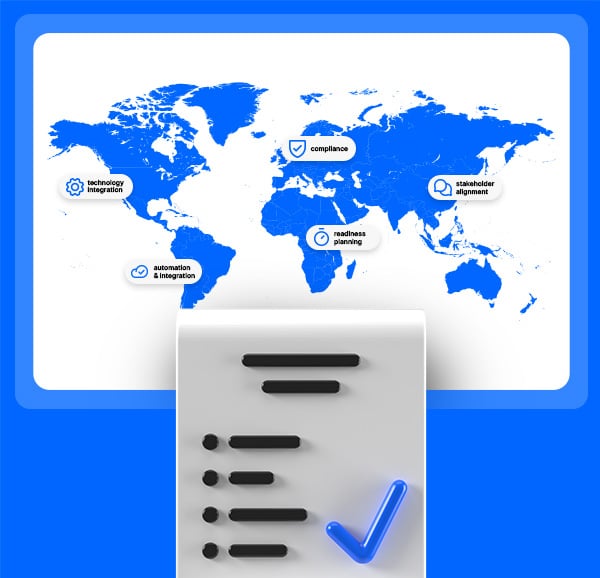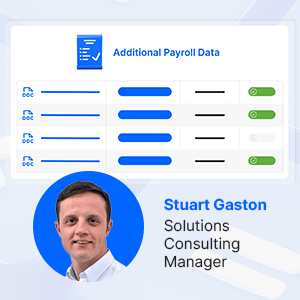Payroll Challenges by Industry
You think you’ve got it bad … The basic payroll processing cycle is the same for all employers. But some industries face unique payroll challenges that add complexity to the job.
Anyone wanting to progress a career in payroll is likely to come up against known industry quirks and requirements at some stage. And for those who work within global payroll, what might be a straightforward industry to process in one country could be a whole different test in another. We investigate here just some of these idiosyncrasies.
Public Sector
Perhaps the most obvious place to start when considering the issue of challenging payrolls by industry is the very basic split between private and public sector. On the face of it, a public sector payroll might seem quite straightforward when compared with commerce. Salaries tend to be fixed, with less opportunity for one off item’s such as ad hoc bonuses, commission payments and other cash incentive schemes. But this would underplay the differences involved.
These start with quite fundamental issues. Many public servants have terms and conditions of service which are statutory – in other words it is the law of the land that these be followed, rather than just being a contractual matter between employee and employer.
An example of this would be the Canadian Labour Code which covers most federal employees. The code regulates key payroll aspects of the employment relationship including the calculation of holiday pay, working time and overtime premiums, and severance payments. It even mandates the practice of “check-off” – the compulsory deduction of union subs regardless of whether or not the employee is actually a member. Those who have a religious objection to paying money to a union can opt out … but only by the employee and trade union agreeing to pass the money instead to a nominated charity.
The world of public sector pay can also be a regimented one. The use of payment by salary scale whereby pay is set by reference to fixed tables of salary rates, with seniority guaranteeing progression up the scale each year until the top point has been achieved, is widespread.
Maintenance of these scales and also overseeing the progression becomes a significant payroll task. This often ties the hand of local managers who want to reward an individual without moving them to a higher pay scale. The result may be a “generous” interpretation of whether or not proficiency allowances, car premiums or location weighting can be awarded in order to boost the final salary payment.
Final Salary Pensions
Media stories about pay are usually incomplete without a reference to “gold plated pensions”. It is true that the public sector around the world has retained greater access to final salary or career average pension plans which guarantee the final pension paid as a known portion of salary rather than being determined by the level of cash savings accrued.
The maintenance of the member records for such pension plans often falls to payroll, with a detailed regular feed of data covering earnings, contributions and a host of employee personal data such as contract changes, amendments to working hours and relevant employee life cycle events such as long-term sick leave and maternity leave. Getting this data right will potentially have implications for the employee for decades to come.
Variation in tax rates by industry
In many countries the basic payroll taxes could be calculated differently based on the industry that the employee is engaged in. This is particularly relevant in the field of social insurance, where governments often design variant social insurance schemes to accommodate the perceived differing risk offered to the social security fund.
Examples include the agricultural sector in Belgium, employers in the electricity and gas sector in France and the Maritime industry in the UK. Having to enrol employees into a different version of the social security scheme, calculate contributions using separate formulae and issue reports to more than one authority will inevitably add complication to the payroller’s job.
The Maritime Industry
The Maritime industry is one of the more challenging for payroll. Its one of the few areas which could be described as genuinely globalised, with Sailors coming from all over the world. The first thing to consider is the impact of an over-arching global set of terms and conditions of service known as the Maritime Labour Convention. This supranational treaty lays out obligations for the payment of wages, provision of leave, repatriation arrangements and medical care for seafarers which apply to signatory States, ship owners, and operators. As an example, section B2.2.2 states that a normal work day will be 8 hours and any hours in excess will be deemed overtime which must be paid at a rate of at least 1.2 times the basic hourly pay rate.
What it does not do is mandate particular amounts that the seafarer must be paid. This is left to the legislation of the country under whose flag the vessel is registered. Minimum wage legislation (if it exists) for the flagging state will then apply when computing legally compliant pay. So the payroller processing a mariner payroll will have to have a working knowledge of both the requirements of the MLO and the national legislative requirements of the flag state.
The top 10 flagging nations in the world are shown below:
None of these jurisdictions is completely free of employment law obligations with a payroll impact, although some offer only limited rights.
Social insurance for marinas
Let’s return to the subject of social insurance for mariners. The UK classifies sailors as a different type of worker to the standard National Insurance scheme, and whilst the employee pays the same level of contribution, the employer contribution differs. Mariners are defined as being those who are foreign going who make journeys to foreign ports or who are deep sea fishermen sailing outside of UK territorial waters.
Marina example
- A mariner earns £2,500 per month.
- A standard employer NIC contribution would be £2,500 – £758 x 15.05% = £262.17
- A mariner employer NIC contribution would be £2,500 – £758 x 14.55% = £253.46
- The mariner is cheaper to employ than a standard employee.
Two EU countries feature in the top 10 list of flag states (Malta and Greece) and the EU has written a special set of rules to determine in which country a mariner should pay contributions.
Ordinarily, the contributions of the EU flagging state will apply to all working onboard unless the mariner is paid by an undertaking in the EU member state in the country where they reside (for social security purposes). The legislation of the member state of residence of the employee then takes precedence. These rules extend to the UK post-Brexit as part of the Trade and Cooperation agreement.
Marina example
- Albert is a French national. He works on a British-flagged vessel ship that sails from Dover to Calais, Zeebrugge, Amsterdam and Copenhagen. He lives in France. Albert is subject to UK NIC’s
- Jean-Paul is also a French national who lives in France. He works on a British flagged vessel doing the same cycle of work as Albert, but the vessel is owned by a French company and Jean-Paul is paid by the French company. As he resides in France, the company must pay French contributions
- Jean-Paul’s friend Bob works with him on the same vessel. Bob lives in Dover. Here, because the vessel is flagged in the UK, and Bob does not reside in the country where the undertaking is based, then the first rule applies and UK NIC’s are due.
Where a vessel is non-EU flagged, then rules on social insurance liability become opaque. Other trading blocs operate similar rules to the EU, for example CARICOM in the Caribbean set contribution liability with the CARICOM state of flagging unless the payer resides in a different CARICOM state where the mariner also resides, then this home state becomes the country for contribution purposes.
Because so many vessels will be flagged outside of a relevant trading bloc, there will usually be a further definition in national law to determine contribution liability. UK law states that any mariner who is UK resident and who is employed on a foreign non-EU vessel where the contract of employment has been entered into in the UK, or the payer of wages has a place of business in the UK is liable for UK National Insurance.
Ship owners and operators can be based anywhere in the world. For this reason, mariners can find that whilst they have a liability for contributions, their employer may not. This will give rise to the phenomenon of employee-only contributions being due, as the employer will not have a physical presence in the country where the employee is resident in. Without this, enforcing any liability is much more difficult and for this reason many countries do not attempt to do so. The ship operators routinely take advantage of this loophole.
Ferry operator example
- A ferry operator sailing ferries between the UK and France contracts with a Guernsey based company to provide crew for their UK flagged vessel. The mariners are all locally hired in the Dover area. Under the EU flagging rules they are subject to employee UK NIC’s. Because the employer is based outside of the EU and UK, there is no liability for employer NIC’s.
- This can create a certain amount of inconvenience for the mariner. Although in principle they accrue the same benefit entitlements as ordinary employees, in practice this does not work in the same way. For example, of the employee were to fall sick, instead of being paid Statutory Sick Pay by the employer, the employee would need to make a claim direct to the social security authorities for a sick benefit. This benefit is not paid at the same rate as Statutory Sick Pay.
Mariners also pose some unique challenges in respect of the general flow of information. As vessels can be anywhere in the world, receiving variable pay information will be at the mercy of the internet or mobile phone signal. And this will apply also to the distribution of payslip information – the seafarer may not be able to physically download an e-payslip until they make the next port which could be several weeks after payday.
The MLO also requires employers to offer the facility to pay some of the pay to dependents back in the home country – an important source of income in countries such as The Philippines, and with Filipinos making up approximately 25% of the global maritime workforce this will be a service in demand. In effect paying net pay as an activity might be doubled if each mariner sends some home to their family and has a portion paid to their own account. Although these days the time spent on-shore can be measured in hours rather than days as ships need to turnround quickly in port to avoid expensive charges.
The offshore industry
The offshore industry faces similar issues, whether it be for the exploitation of oil, gas or wind energy. Aspects of the work may suggest that some of the workers are mariners – for example the provision of floatel accommodation where former cruise and ferry ships have been adapted to provide sea-based accommodation for workers. The specific circumstances of each arrangement need to be carefully investigated, but as a rule of thumb those living and working on such floatels are generally not considered to be mariners.
Tax liabilities for offshore workers may also require some thought. Most maritime nations that exploit resources from under the seas bed (or indeed from offshore wind farms) will have declared an Exclusive Economic Zone (EEZ) significantly extending territorial waters past the 12 mile limit. This ensures that unlike a mariner, their place of work is firmly in that country and therefore is subject to any tax withholding laws appertaining to that country. Work in this sector is unlikely to be Monday – Friday 9-5 – it may consist of just a few days of work as a time, although platform and rig workers tend to work in fixed rotations (2 weeks on/ 2 weeks off being common). This is a global industry and for that reason workers are likely to be coming from anywhere in the world.
With workers being so transient, with their time in country brief, tax authorities tend to target these high earners with special rules.
Consider the position in both Norway and Denmark for offshore workers coming from abroad. Both countries have special rules that indicate that the normal rules regarding short term business visitors from abroad do not apply, and any presence on offshore work will result in a tax liability.
To illustrate this, Norway issues tax tables down to the level of 1, 2, 3 or 4 days of presence in country. A complex reporting requirement means that any presence of foreign workers must be reported to the tax authorities within 14 days of arrival in Norwegian territorial waters. The employer must advise arrival and departure dates, and process a Norwegian payroll for the time spent working in jurisdiction. Meeting these tough deadlines can be a perpetual nightmare for a payroll department left at the end of the communication chain.
Transport industry
Finally, what about those workers where travel is the essence of what they do for a living? Lorry drivers and aircrew move around just as much as mariners. Both groups often have special rules applied in the context of subsistence allowances and tax liability. Making sure the rules are followed will be essential to avoiding big compliance issues. Consider the following scenario:
Lorry driver example
Ireland allows lorry drivers to be paid €15.41 per day tax free provided the driver travels at least 8KM and spends at least 5 hours away from the home depot. A Revenue investigation in one transport company revealed that inadequate records had been kept which failed to show an appropriate journey had been undertaken, and also that two or more allowances had been paid for the same day for some drivers. The employer was obliged to retrieve the records on all claims going back three years, and it was discovered that approximately €1 million of tax free allowances had been paid without adequate evidence. The company was obliged to foot the bill for missing taxes, interest and penalties which amounted to €0.5 million.
The airline industry
The airline industry has similar issues with tax-free subsistence allowances. Within the European Economic Area, there is a special rule regarding social insurance liability to consider. An airline will usually have crew scattered across the whole of Europe – but which country should pilot’s and cabin crew pay social insurance in? The position was standardised on June 2012 when the liability of the crew base country was set as applying. So a pilot who lives in Germany but travels to an airport in The Netherlands to join their plane pays Dutch contributions.
Previously, the contributions of the country of residence of the airline could have been applied, and a 10 year transition period was introduced to allow existing staff to move to the crew base arrangements. That transition period ceased on 30th June 2022 and any A1 certificate which indicated a contribution liability in a country other than the crew base one is now null and void.


